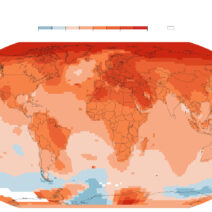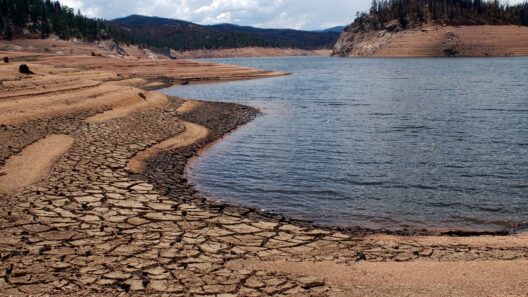Climate change is an omnipresent threat, resonating throughout the fabric of our societies. The notion that individual actions can yield significant change is often met with skepticism. Yet, a collection of small, deliberate steps can accumulate into a formidable force against climate degradation. Here, we delineate ten actionable strategies that, when collectively adopted, can significantly contribute to our battle against climate change.
1. Embrace Sustainable Transportation
The transportation sector is a leading contributor to greenhouse gas emissions. Transitioning from gas-guzzling vehicles to sustainable alternatives can have a profound impact. Opt for public transit, dedicate time to biking, or walk whenever circumstances allow. Carpooling also reduces the number of vehicles on the road, minimizing emissions. Moreover, consider investing in an electric vehicle (EV), which possesses lower operational emissions compared to conventional vehicles, providing a clear path toward a greener future.
2. Reduce, Reuse, Recycle
While this trinity is commonly cited, its importance cannot be overstated. The act of reducing consumption is paramount. Before acquiring new items, assess their necessity; often, one’s home may harbor surplus goods. Reusing items prolongs their lifespan and minimizes waste. Lastly, proper recycling practices ensure that materials are reintroduced into the production cycle, thus conserving resources and reducing landfill contributions.
3. Shift to a Plant-based Diet
Our dietary choices directly impact the environment. The livestock industry is a significant source of methane emissions, a potent greenhouse gas. By incorporating more plant-based foods into one’s diet, the pressure on land resources, water, and energy diminishes. Consider experimenting with meatless Mondays or gradually substituting animal products for plant-based alternatives. With an abundance of delicious and nutritious options available, this transition is both sustainable and rewarding.
4. Optimize Energy Efficiency
Energy consumption remains a key player in climate change. Improving the energy efficiency of homes and businesses can markedly reduce carbon footprints. Simple measures like insulating walls, utilizing energy-efficient appliances, and switching to LED light bulbs can decrease energy usage significantly. Furthermore, implementing smart technology to track and manage energy consumption fosters a more conscious approach to energy use, enhancing overall efficiency.
5. Advocate for Renewable Energy
Transitioning from fossil fuels to renewable energy sources is essential for curtailing climate change. Individuals can champion renewable energy by supporting local initiatives or investing in personal solar panels. This not only decreases dependence on non-renewable sources but also contributes to the larger movement toward sustainable energy production. Advocacy for policies favoring renewables augments collective power, urging governments and corporations to invest in sustainable infrastructure.
6. Foster Water Conservation
Water is a precious resource, often overlooked in discussions of climate action. Employing conservational techniques—such as fixing leaks, utilizing water-efficient fixtures, and adopting drought-resistant landscaping—can significantly mitigate water use. Furthermore, rainwater harvesting systems provide an alternative source of water for irrigation and other uses, illustrating that responsible water management is a critical component in the fight against climate change.
7. Engage in Local Conservation Efforts
Participation in local environmental initiatives can foster a sense of community while preserving natural resources. Joining conservation groups or volunteering for local clean-up projects directly impacts local ecosystems. Collective action in restoring degraded habitats or planting trees not only enhances biodiversity but also sequesters carbon, rendering tangible benefits for the environment while cultivating a more sustainable community ethos.
8. Educate and Spread Awareness
Knowledge is a powerful tool against climate change. Sharing information about climate issues and effective action steps can inspire others to join the movement. Utilize social media platforms, community forums, and educational workshops to inform others of the imminent challenges and the small, yet effective actions they can take. The ripple effects of awareness can galvanize communities and encourage a collective effort toward sustainability.
9. Support Sustainable Brands
Consumer behavior plays a crucial role in shaping market trends. By consciously supporting brands that prioritize sustainability, individuals can signal to corporations the demand for ethical practices. Look for certifications such as Fair Trade or Organic, which indicate a commitment to environmentally friendly practices. Every purchase serves as a vote for the kind of world one wishes to inhabit, thereby exerting influence on larger economic structures.
10. Advocate for Policy Change
While individual actions are vital, systemic change is necessary for addressing the climate crisis comprehensively. Engaging with representatives to advocate for sustainable policies can amplify the call for climate action on a legislative level. Writing letters, rallying for climate-friendly initiatives, or participating in local government meetings can catalyze substantial changes. Speaking out on crucial issues facing communities can encourage political engagement and promote climate-focused legislation.
In conclusion, the fight against climate change is multifaceted, requiring both individual and collective actions. Embracing sustainable practices in daily life is essential; every small step counts. By fostering a culture of environmental responsibility, society can cultivate lasting change, ensuring a healthier planet for future generations. Each initiative serves both as a beacon of hope and a critical element in the ongoing battle against climate change. Thus, take that first small step today and inspire others to follow suit, for the impact can indeed be monumental.








